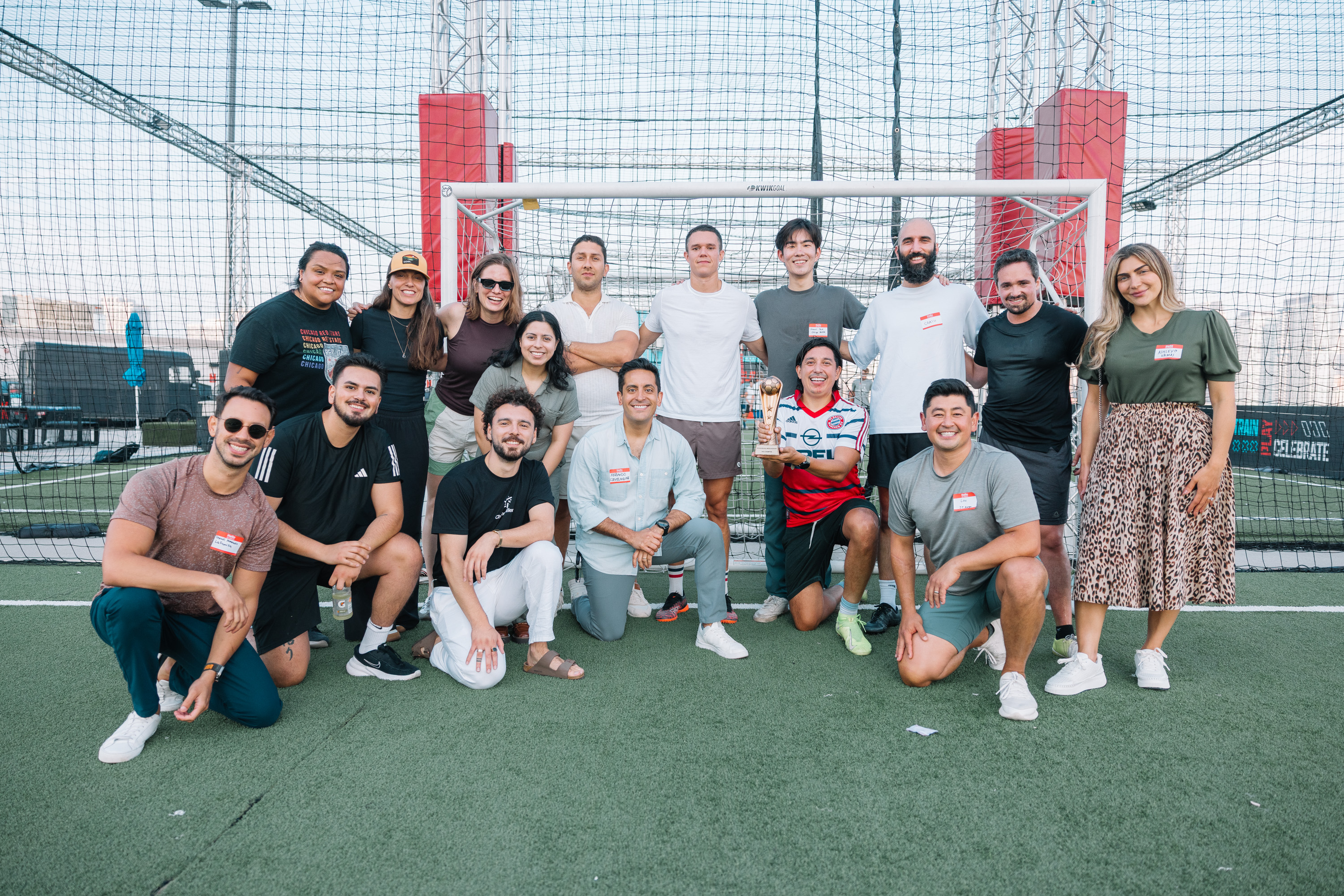From Pharma to Founder: Jordan Karim on Quitting Her Job to Build in a $75B Market

Don't Miss a Step. Subscribe to our Newsletter
Leaving a corporate career to start your own business is both life-changing and intimidating. For Jordan Karim, the founder of Flora & Noor, this transition from the familiar corporate world to start-ups was both a challenge and an opportunity. Fueled by her passion for skincare and a desire to address an unmet need, Jordan’s journey highlights how persistence, preparation, and purpose can lead to success. Jordan talked with LongJump about how she made the leap—and her advice for aspiring entrepreneurs considering the same path.
Discovering the Opportunity

Jordan’s career began in pharmaceuticals, where she worked as a consultant and research chemist for major companies like Allergan and Johnson & Johnson. She loved the transformative impact of skincare—seeing visible changes in people’s skin and self-confidence brought her immense satisfaction. However, as a halal-observing Muslim, she couldn’t use many of the products she helped develop and sell.
“Many products weren’t permissible for me to use,” she explains. “I wanted to create something inclusive for everyone, particularly underserved communities.” This personal experience, combined with her competitive nature (she was a top 1% sales consultant for Allergan) and a lifelong desire to run her own business, sparked the idea for Flora & Noor.
Jordan began by researching halal beauty in the U.S. market and found that it represented a $75 billion opportunity. Many halal-observing Muslims were either DIYing products, importing from abroad, or breaking halal entirely. “Muslims have settled for so long,” she notes. “I wanted to change that and be a role model for my kids.”
Quitting her job in 2019, Jordan took a year to focus on her family while fine-tuning her business. She launched Flora & Noor on Amazon in December 2020, testing her products with small batches made in her kitchen. Once she started selling, the results came quickly.
Less than three months into going live, Jordan was on a vacation with her husband. “I kept checking sales while we were away, and one day, we sold 500 units,” Jordan recalls. “I turned to my husband and said, ‘We have a problem—I can’t make this many products in our kitchen anymore.’ That’s when I knew it was time to scale production.”
Preparing for the Move to Full-Time Founder
Jordan didn’t jump into entrepreneurship overnight. Instead, she took calculated steps while still working her corporate job. Her key steps and tips she recommends to other founders:
- Don’t Quit Prematurely: “Work on your idea while you’re still employed,” Jordan suggests. This reduces financial stress and gives you time to test your concept.
- Research and Ideation: Jordan conducted extensive research on halal certification, learning about its requirements and why it wasn’t prevalent in the U.S. She experimented with formulations at home, driven by her son’s eczema and her desire to create products that addressed chronic skin conditions. This allo for a marketing approach that expanded beyond the halal market.
- Financial Planning: “Financial literacy is critical,” she emphasizes. Jordan carefully mapped out her runway—the time and resources she’d need before her business became self-sustaining. Many first-time founders underestimate the funds required to launch from scratch, often overlooking critical parts of the process. For Jordan, this popped up around company infrastructure—her 3PL, warehousing, and tech stack cost more than anticipated to set up and maintain. From manufacturing costs to marketing, understand the financial requirements of your business. Jordan advises, “Plan for more than you think you’ll need.”
- Think Critically About Your Idea: Jordan developed a comprehensive business plan before leaving her job. She identified her brand’s differentiation points and how to position it in the market—something she knew would be particularly important in skincare given her previous professional experience in the industry.
- Family Support: Transitioning to entrepreneurship isn’t a solo endeavor. Jordan involved her family in the decision, ensuring they were on board with the challenges ahead. “Having a support system is vital,” she says. A mom with three children, Jordan frequently traveled for her consulting job and already relied heavily on her family for support. Becoming a founder was an evolution of that work-life combination, and she had discussions with her family about how starting this business wasn’t taking her foot off the gas pedal; she would be working harder than ever to create a brand that reflected her family values and hopefully earn generational wealth.
- Seek Community and Mentorship: “You can’t do it alone,” she says. Jordan recommends connecting with other founders and joining accelerator programs to learn and grow. She credits the guidance of programs offered by Glow Recipe (a Korean beauty brand), Ulta, and Glossier, for helping her articulate and scale her brand before she ever approached investment capital. Jordan cites an Issa Rae quote, encouraging founders to not just network up but also across: “Who’s next to you? Who’s struggling? Who’s in the trenches with you? Who’s just as hungry as you are?... those are the people that you need to build with.”
- Prepare for a Mindset Shift: As a founder, you’re responsible not just for your success but for your team and brand’s mission. Jordan notes, “You’re no longer just doing tasks—you’re setting the vision and driving the company forward.” Think about how you will operate when you’re no longer being told what to do by a boss and need to determine your team's goals and direction. How will you handle the blank page every one of your early days will offer?
- Embrace the Unknown: Starting a business means encountering unfamiliar challenges. “Don’t be afraid to ask questions,” Jordan advises. “The worst thing someone can say is no.”
Why Take the Leap?
For Jordan, the rewards of entrepreneurship go beyond financial gains. “It’s fulfilling to solve a problem for a community and create something meaningful,” she reflects. The creative freedom and potential for generational wealth make the hard work and time away from her family worthwhile.
Jordan’s story is a testament to the power of preparation, persistence, and passion. If you’re considering starting your own business, take the time to research, plan, and build a support system. The journey isn’t easy, but as Jordan shows, it can be deeply rewarding.
What’s your next step? Whether it’s drafting a business plan, sharing your idea with your target market, or discussing it with family, start taking actionable steps toward your entrepreneurial vision today.
Ready to Take The leAp?
Community
Contact
© 2025 | Site Built By PNW



.png)